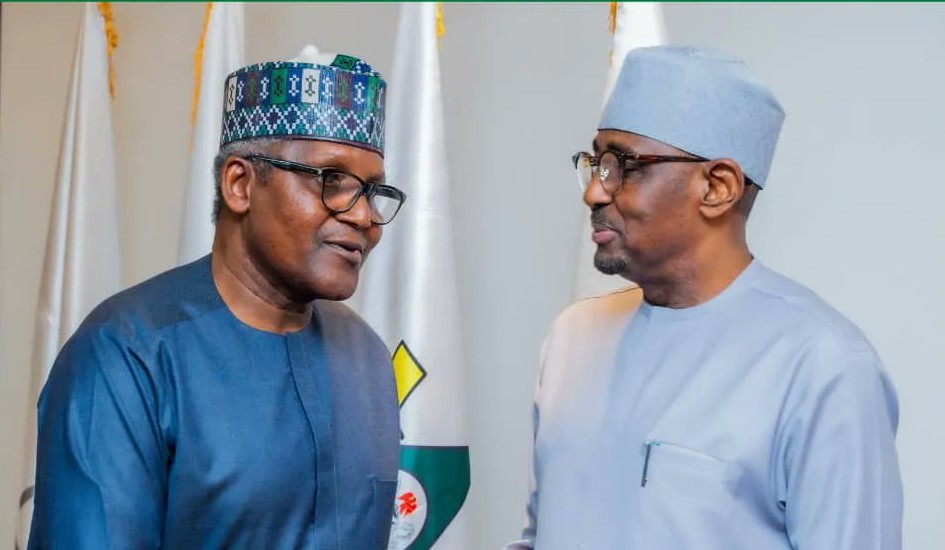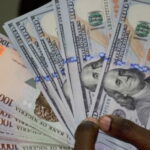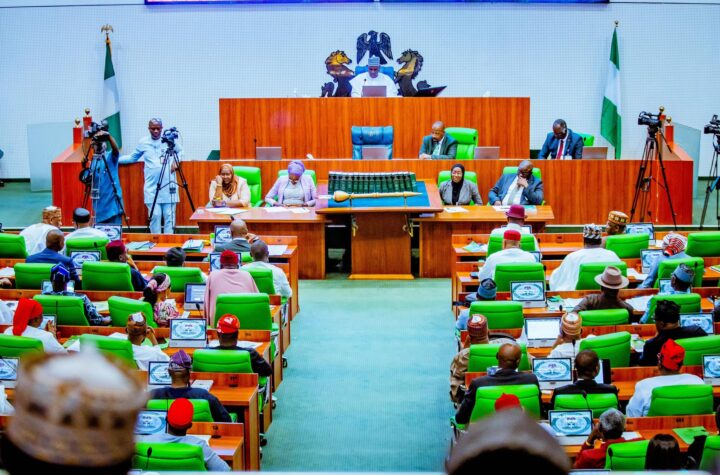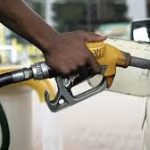On 19th July 2024, news emerged that the Federal Government said that Nigeria would continue to import refined petroleum products to ensure that Dangote Refinery did not have a monopoly that could affect the country in the long run. Farouk Ahmed, said Nigeria could not depend on one refinery to feed the nation. Farouk added that Dangote Refinery’s quest that all oil marketers should buy products from the plant does not support competition.
In June, Devakumar Edwin, vice president, oil and gas, at the Dangote Group, tried to prove that the oil firm had a far better quality product than what was being imported into the country by the Nigerian Midstream and Downstream Petroleum Regulatory Authority (NMDPRA). On the contrary, the Chief Executive of the Nigerian Midstream and Downstream Petroleum Authority (NMDPRA), an agency of the Federal Government, Farouk Ahmed, told journalists in Port Harcourt that Dangote Refinery’s diesel, much as the diesel from modular refineries like Waltersmith and Aradel, has high sulphur levels, which can harm vehicle engines and damage the human biosphere, the interdependent atmospheric conditions that support all life.
Join our WhatsApp ChannelThe statement is a curious counter to the views of Aliko Dangote, who had assured that Nigeria, and indeed West Africa, could get all of their need for diesel, aviation fuel and gasoline from his refinery as early as June 2024, with a daily capacity of 650,000 barrels. Speaking at the Africa CEO Forum Annual Summit in Kigali, capital of Rwanda, May 17, Dangote declared that Africa would no longer need to import anything, not a litre. Detergent and fertilizer were added to the list of areas where the continent would soon achieve self-sufficiency courtesy of Dangote Refinery. Moreover, Africa, Brazil and Mexico were also billed to get aviation fuel from Nigeria.
But Who Really Undermines Competition?
When Aliko Dangote decided to site his refinery in Lekki, Lagos, near to the waterways, he may have second-guessed the Nigerian government on crude supplies. Today, as the Dangote Refinery imports crude, it appears that he was initially prepared for the worst. Dangote had cited existing infrastructure, logistics, proximity to international shipping routes and the presence of a skilled workforce as reasons for choosing Lagos. Nearness to the source of raw material was not an issue. No doubt, the Niger Delta, home of crude oil in Nigeria, can favorably compete with Lagos on all the mentioned reasons by Dangote.
There are four government owned refineries in Nigeria. For a quarter of a century, the four refineries have remained dormant despite draining trillions of dollars in repairs. Private operators have made effort to establish five modular refineries, and one conventional refinery, but are importing crude oil in a country that holds the world’s 11th largest crude deposits, and one of the choicest in the world. How else do you define government’s lack of political will to encourage competition?
READ ALSO: Dangote Refinery: From Production Delays To Threat Of Sale
Early in the administration of President Bola Tinubu’s government, the media reported a lack of rapprochement between the president and Aliko Dangote. Are we seeing the results of the tussle in terms of frustrating Dangote? Or, is it a leeway to make excuses for well-orchestrated plans by multinational oil firms to make Dangote Refinery to fail? In recent article on the delays that now characterize Dangote Refinery, I expressed worry that the refinery may after all be a plain white elephant project, and perhaps a mistake by hegemonists, who are wondering why they allowed Nigeria to get such a refinery. But, why would Tinubu’s government not see Dangote’s refinery as a potent avenue to help Nigeria’s dire economic situation, which is now threatening to cause nationwide protests?
Threats to Sell Dangote Refinery May Result in Serving Only the International Market?
The House of Representatives says it has constituted an ad-hoc committee to probe allegations that International Oil Companies (IOCs) operating in Nigeria have refused to supply crude to indigenous refiners. The Nigerian Upstream Petroleum Regulatory Commission (NUPRC) has also said it is doing its utmost to supply crude to Dangote Refinery and other modular refinery operators. The Head of Public Affairs and Corporate Communications, NUPRC, Olaide Shonola, said the Commission developed the crude oil obligation framework and many others to ensure that the Dangote Refinery and others have crude supplies. Obviously, these efforts have not worked following Aliko Dangote’s indication of his intention to sell his refinery to the NNPCL, the oil leviathan that crumbled local refining in Nigeria.
If Dangote does not sell his refinery, as it seems farfetched, he may be forced to continue buying crude from the international markets. As a result, he would end up producing PMS for the export market to be sure of operating profitably. The latest indication of selling the refinery may therefore be a preparation for working only for the export market. The outside world thus remains the major beneficiaries.
On 12th July 2024, the New York Times reported that “a complex, artificial intelligence-driven technology was used to find a vast copper deposit in Zambia that could give the U.S. an edge in its tech rivalry with China”. Zambia, the resource ‘owner’, does not matter in the equation. After all, Africa is used to being deposits of raw materials for the economic advantage of other countries.
READ ALSO: Dangote Refinery: Of Hopes, Drools And Jokes
International oil companies have so far been the sole beneficiaries of the gold, diamond, oil, etc., in Nigeria such that they determine whether or not a local company would benefit from resources in Nigeria. This has been the argument of some schools of thought that oppose local government (LG) autonomy. The school of thought argues that Nigeria will soon begin the see new dimensions in resource ownership and exploitation following full implementation of LG autonomy. In all, the controversies playing out with the Dangote Refinery is a new culmination of the ultimate effects of hegemony. Looking at government’s indecisions on insecurity, food inflation and fuel prices, one has to suspect that there is a lot more than meets the eye in terms of what government can do, and is ‘allowed’ to do. It goes back to the election realties in developing countries, with Nigeria as a deadly example.
Dr Mbamalu is a Jefferson Fellow, member of the Nigerian Guild of Editors (NGE) and a renowned Publisher
Follow on X: @marcelmbamalu
Dr. Marcel Mbamalu is a communication scholar, journalist and entrepreneur. He holds a Ph.D in Mass Communication from the University of Nigeria, Nsukka and is the Chief Executive Officer Newstide Publications, the publishers of Prime Business Africa.
A seasoned journalist, he horned his journalism skills at The Guardian Newspaper, rising to the position of News Editor at the flagship of the Nigerian press. He has garnered multidisciplinary experience in marketing communication, public relations and media research, helping clients to deliver bespoke campaigns within Nigeria and across Africa.
He has built an expansive network in the media and has served as a media trainer for World Health Organisation (WHO) at various times in Northeast Nigeria. He has attended numerous media trainings, including the Bloomberg Financial Journalism Training and Reuters/AfDB training on Effective Coverage of Infrastructural Development of Africa.
A versatile media expert, he won the Jefferson Fellowship in 2023 as the sole Africa representative on the program. Dr Mbamalu was part of a global media team that covered the 2020 United State’s Presidential election. As Africa's sole representative in the 2023 Jefferson Fellowships, Dr Mbamalu was selected to tour the United States and Asia (Japan and Hong Kong) as part of a 12-man global team of journalists on a travel grant to report on inclusion, income gaps and migration issues between the US and Asia.



















Follow Us